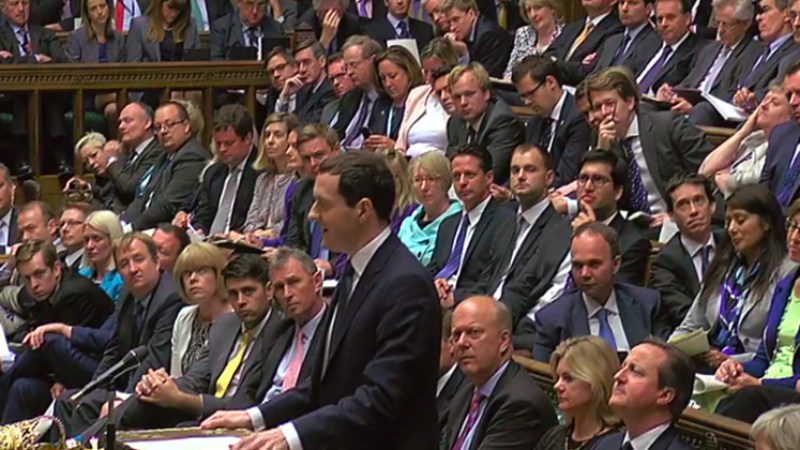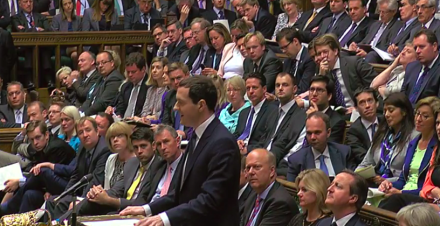

The Tories are starting to make a habit of stealing Labour’s tax clothing.
First, came Labour’s proposals for penalties for those who had engaged in abusive tax avoidance. Ed Balls called for them here, adopting what I had called for several days earlier in the ICAEW’s Hardman Lecture. In the last Budget of the Coalition the Conservatives announced they intended to follow suit (para 1.244) and today the Chancellor confirmed he would.
Next came Labour’s proposals to abolish and replace the centuries old regime for the taxation of non-doms. That regime enable those living here but who have some foreign connection such that they are ‘domiciled’ outside the UK to avoid UK tax on foreign income, tax that those domiciled here would have to pay. So long as they don’t bring the money into the UK – remit it, in the parlance – there is no liability to UK taxation.
In his budget earlier today, George Osborne announced that the Conservatives too would modestly refashion the rules around non-doms.
We await the detail, but what the measures proposed will do is create two new statutory rules. First, if you are born in the United Kingdom to UK domiciled parents, you will no longer be able to claim non-dom status. This aims to tackle the evidential problem that the hugely valuable tax status of non-dom throws up (a difficulty I discuss in more detail below). The second rule is that if you have been resident here for more than 15 of the last 20 years you will be deemed to be domiciled.
However, the Conservatives’ proposals are seriously flawed.
First, the charge the regime must answer to is this: by offering those with the necessary foreign connection a different and more attractive basis of taxation – a ‘fiscal sweetener’ if you like – to come or stay here we discriminate against those who are UK through and through, who don’t have that foreign connection. But the Tories’ proposal simply ignores that charge. Wealthy foreign non-doms will still be taxed more favourably than those whose domicile is in the UK. The fundamental injustice of the regime remains.
Second, one of the arguments – see this Robert Peston piece – for having a non-dom regime is that all those wealthy foreigners bring work for the UK services sector – bankers, lawyers, restauranteurs and so on. But if that’s what the regime wants, it has a funny way of getting it. Because an unsurprising consequence of a regime that taxes people on money that they bring into the country to spend is that it discourages people from bringing money into the country to spend. The Tories’ proposals do nothing to ensure that the regime faces in a single direction.
A third big problem with the non-dom regime is that no-one knows whether you’re entitled to it. The test is whether you plan to go live in some other country, your country of domicile, at some point in the future. But the question how truthful you’re being when you tell HMRC of your present intention as to your future conduct is one which it’s rather difficult for courts to test. Perhaps that’s why, as I explained here, HMRC have only brought before the courts one single challenge on domicile status in the last decade. The measures proposed recognise and attack this flaw, but in a fairly half-hearted fashion. For those who have lived in the UK for less than 15 out of the last 20 years, and weren’t born in the UK to UK domiciled parents, entitlement to the hugely tax valuable status of non-dom won’t (in practical terms) be much more than a matter of merely asserting entitlement to it.
Finally there is a question of what tax might be raised by the changes. Whilst recognising that deficiencies in the data rendered the exercise a rather speculative one, I argued here that the changes Labour proposed could “yield well north of £1bn per annum”. That, the IFS said, may be achievable. The Tories’ proposals are anticipated to raise some around £380m a year.
The lack of certainty about what income and gains non-doms generate offshore – and how they might react to changes in the tax regime – renders foolhardy any comparison between Labour’s proposals and the Conservatives’ response that’s based solely on yield. The deficiencies in the data bedevil the Government’s analysis as they bedevilled Labour’s. What is clear, however, is that Labour’s proposals solved the first three problems set out above – and the Conservatives’ don’t.
Jolyon Maugham QC blogs on tax at Waiting for Tax




More from LabourList
‘Labour won’t stop the far right by changing leaders — only by proving what the left can deliver’
‘Cutting Welsh university funding would be economic vandalism, not reform’
Sadiq Khan signals he will stand for a fourth term as London Mayor